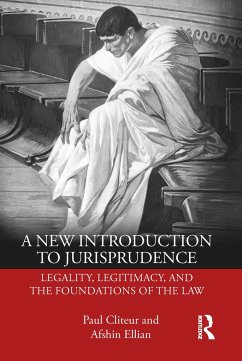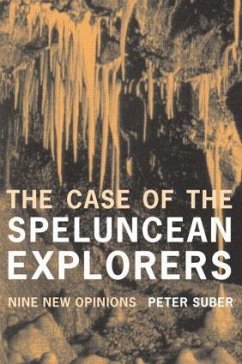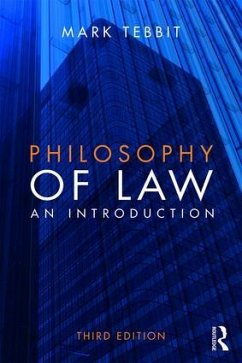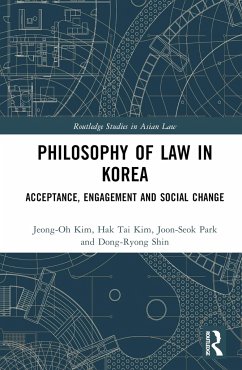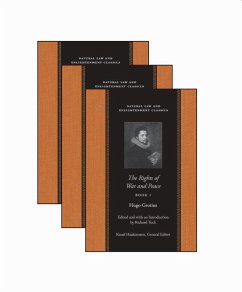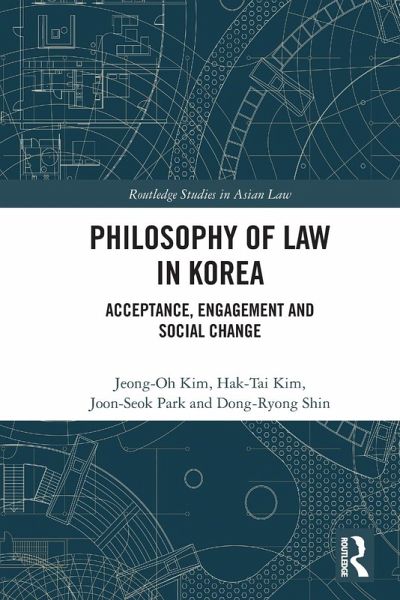
Philosophy of Law in Korea
Acceptance, Engagement and Social Change
Versandkostenfrei!
Versandfertig in 6-10 Tagen
43,99 €
inkl. MwSt.
Weitere Ausgaben:

PAYBACK Punkte
22 °P sammeln!
When Korea began as a newly independent state in 1948, its economy was very underdeveloped and the rule of law was just established. The journey of democratization in Korea was not without challenges. This book traces the history of the legal philosophy development in Korea and highlights Korea's unique experience. This book shows how Western legal philosophy has been accepted in Korea, a non-Western country that has newly introduced the Western legal system and what role the legal philosophy has played in social context.The book also examines academic scholars' intellectual activities in a hi...
When Korea began as a newly independent state in 1948, its economy was very underdeveloped and the rule of law was just established. The journey of democratization in Korea was not without challenges. This book traces the history of the legal philosophy development in Korea and highlights Korea's unique experience. This book shows how Western legal philosophy has been accepted in Korea, a non-Western country that has newly introduced the Western legal system and what role the legal philosophy has played in social context.
The book also examines academic scholars' intellectual activities in a historical context and how their intellectual products are yielded through their continuous response to the circumstances of the time. It specifically looks at the many challenging tasks legal philosophers had to overcome in a society when the rule of law and democracy had not yet settled. The book explores how Korean legal philosophers coped during such unique historical situations. It also illustrates how Korean scholars accepted German and Anglo-American legal philosophies and integrated them to change social realities of Korea.
Through Korea's experience, this book will provide insights into how modern legal philosophy develops in a new state and what legal philosophers' responses would be like during such a process. The developing process of legal philosophy in Korean society will interest not only readers in countries who have had similar experiences to Korea, but also readers in the West.
The book also examines academic scholars' intellectual activities in a historical context and how their intellectual products are yielded through their continuous response to the circumstances of the time. It specifically looks at the many challenging tasks legal philosophers had to overcome in a society when the rule of law and democracy had not yet settled. The book explores how Korean legal philosophers coped during such unique historical situations. It also illustrates how Korean scholars accepted German and Anglo-American legal philosophies and integrated them to change social realities of Korea.
Through Korea's experience, this book will provide insights into how modern legal philosophy develops in a new state and what legal philosophers' responses would be like during such a process. The developing process of legal philosophy in Korean society will interest not only readers in countries who have had similar experiences to Korea, but also readers in the West.








